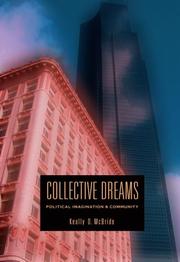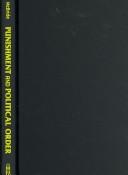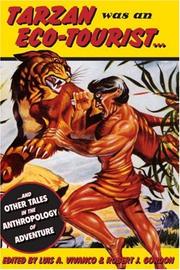| Listing 1 - 6 of 6 |
Sort by
|
Book
ISBN: 0190252995 0190253002 0190252987 Year: 2016 Publisher: New York, NY : Oxford University Press,
Abstract | Keywords | Export | Availability | Bookmark
 Loading...
Loading...Choose an application
- Reference Manager
- EndNote
- RefWorks (Direct export to RefWorks)
In Mr. Mothercountry, Keally McBride draws on original archival research of the writings of James Stephen and his descendants, as well as the Macaulay family, two major lineages of legal administrators in the British colonies, to explore the gap between the ideal of the rule of law and the ways in which it was practiced and enforced.
Law --- Rule of law --- Colonies. --- Colonies --- English influences. --- Acts, Legislative --- Enactments, Legislative --- Laws (Statutes) --- Legislative acts --- Legislative enactments --- Jurisprudence --- Legislation --- Supremacy of law --- Administrative law --- Constitutional law

ISBN: 9780271073484 0271059095 0271061618 0271032405 9780271032405 9780271059099 9780271052878 0271052872 027102688X 9780271026886 9780271026893 0271026898 Year: 2005 Publisher: University Park Penn State University Press
Abstract | Keywords | Export | Availability | Bookmark
 Loading...
Loading...Choose an application
- Reference Manager
- EndNote
- RefWorks (Direct export to RefWorks)
How do we go about imagining different and better worlds for ourselves? Collective Dreams looks at ideals of community, frequently embraced as the basis for reform across the political spectrum, as the predominant form of political imagination in America today. Examining how these ideals circulate without having much real impact on social change provides an opportunity to explore the difficulties of practicing critical theory in a capitalist society. Different chapters investigate how ideals of community intersect with conceptions of self and identity, family, the public sphere and civil society, and the state, situating community at the core of the most contested political and social arenas of our time. Ideals of community also influence how we evaluate, choose, and build the spaces in which we live, as the author’s investigations of Celebration, Florida, and of West Philadelphia show.Following in the tradition of Walter Benjamin, Keally McBride reveals how consumer culture affects our collective experience of community as well as our ability to imagine alternative political and social orders.Taking ideals of community as a case study, Collective Dreams also explores the structure and function of political imagination to answer the following questions: What do these oppositional ideals reveal about our current political and social experiences? How is the way we imagine alternative communities nonetheless influenced by capitalism, liberalism, and individualism? How can these ideals of community be used more effectively to create social change?
Communities. --- Communities --- Community life --- Associations, institutions, etc. --- Human ecology --- Community --- Social groups --- Political aspects. --- Political aspects --- Celebration Florida. --- Keally D. McBride. --- Walter Benjamin. --- West Philadelphia. --- capitalism. --- identity. --- philosophy. --- political science. --- public sphere.
Book
ISBN: 9780195399585 9780195399578 0195399587 0195399579 9786613009715 0199837848 1283009714 0190453354 Year: 2011 Publisher: New York : Oxford University Press,
Abstract | Keywords | Export | Availability | Bookmark
 Loading...
Loading...Choose an application
- Reference Manager
- EndNote
- RefWorks (Direct export to RefWorks)
Recent scholarship in political theory has focused on the treatment of colonialism in the writings of canonical thinkers such as Locke, Burke, Mill, Diderot, Tocqueville, Smith, and Kant, revealing the extent to which the subject of colonialism and imperialism dominated the minds of great thinkers as the colonial project took place.
Decolonization. --- Postcolonialism. --- Décolonisation --- Postcolonialisme --- Decolonization --- Postcolonialism --- AA / International- internationaal --- 325 --- 327.0 --- Koloniale politiek. --- Internationale politiek: algemeenheden. --- Décolonisation --- Post-colonialism --- Postcolonial theory --- Political science --- Sovereignty --- Autonomy and independence movements --- Colonization --- Koloniale politiek --- Internationale politiek: algemeenheden

ISBN: 9780472023172 9780472901135 9781282463004 0472901133 0472023179 0472099825 0472069829 1282463004 9786612463006 Year: 2007 Publisher: Ann Arbor : University of Michigan Press,
Abstract | Keywords | Export | Availability | Bookmark
 Loading...
Loading...Choose an application
- Reference Manager
- EndNote
- RefWorks (Direct export to RefWorks)
Most of us think of punishment as an ugly display of power. But punishment also tells us something about the ideals and aspirations of a people and their government. How a state punishes reveals whether or not it is confident in its own legitimacy and sovereignty. Punishment and Political Order examines the questions raised by the state’s exercise of punitive power—from what it is about human psychology that desires sanction and order to how the state can administer pain while calling for justice. Keally McBride's book demonstrates punishment's place at the core of political administration and the stated ideals of the polity.
Punishment --- Social control. --- Sovereignty. --- Philosophy. --- Government policy. --- Government policy --- Penalties (Criminal law) --- Penology --- Corrections --- Impunity --- Retribution --- Sovereignty --- State sovereignty (International relations) --- International law --- Political science --- Common heritage of mankind (International law) --- International relations --- Self-determination, National --- Social conflict --- Sociology --- Liberty --- Pressure groups --- Law and legislation --- Punishment -- Government policy -- United States. --- Punishment -- Government policy. --- Punishment -- Philosophy. --- Social control --- Criminology, Penology & Juvenile Delinquency --- Social Welfare & Social Work --- Social Sciences --- Philosophy
Digital
ISBN: 9780472023172 9780472901135 9781282463004 Year: 2007 Publisher: Ann Arbor University of Michigan Press
Abstract | Keywords | Export | Availability | Bookmark
 Loading...
Loading...Choose an application
- Reference Manager
- EndNote
- RefWorks (Direct export to RefWorks)
Most of us think of punishment as an ugly display of power. But punishment also tells us something about the ideals and aspirations of a people and their government. How a state punishes reveals whether or not it is confident in its own legitimacy and sovereignty. Punishment and Political Order examines the questions raised by the state’s exercise of punitive power—from what it is about human psychology that desires sanction and order to how the state can administer pain while calling for justice. Keally McBride's book demonstrates punishment's place at the core of political administration and the stated ideals of the polity.


ISBN: 9781782381952 1782381953 1845451112 9781845451110 1845451104 9781845451103 Year: 2006 Publisher: New York Oxford
Abstract | Keywords | Export | Availability | Bookmark
 Loading...
Loading...Choose an application
- Reference Manager
- EndNote
- RefWorks (Direct export to RefWorks)
| Listing 1 - 6 of 6 |
Sort by
|

 Search
Search Feedback
Feedback About UniCat
About UniCat  Help
Help News
News